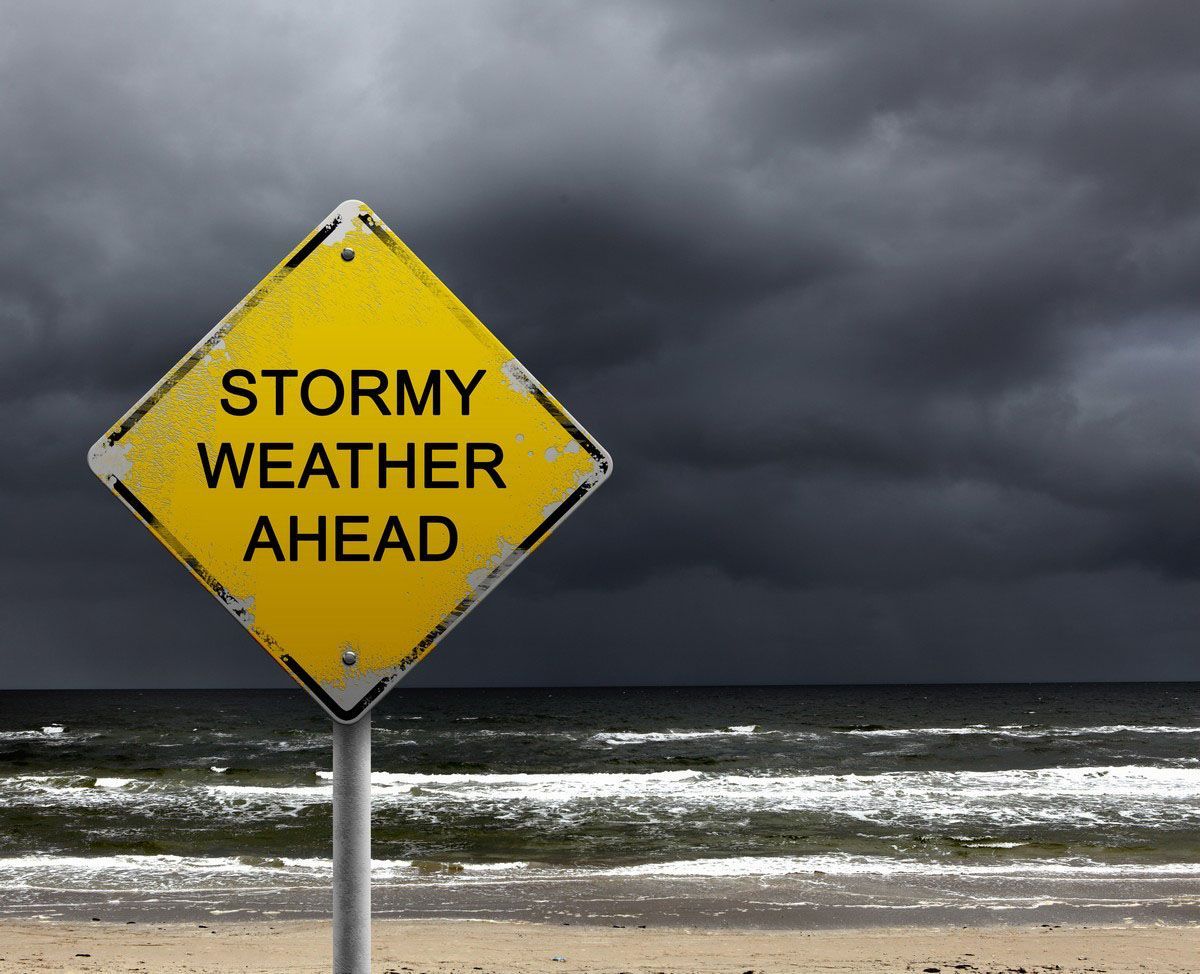October 29, 2025
Accurate weather forecasting plays a crucial role in shaping business operations across various industries. By leveraging precise weather predictions, businesses can improve efficiency, reduce costs, and enhance customer satisfaction. This article explores the multifaceted ways in which weather forecasting impacts business activities. As climate conditions become increasingly erratic, utilizing detailed meteorological data is more critical than ever.
Embracing robust forecasting systems allows businesses to minimize risk and capitalize on opportunities that arise due to shifting weather patterns. Additionally, integrating weather insights into supply chain management, staffing, and marketing strategies helps organizations respond proactively rather than reactively, ensuring smoother operations, stronger resilience, and a competitive edge in rapidly changing markets.
1. Enhancing Supply Chain and Logistics Efficiency
Businesses strive to maintain timeliness in deliveries, and accurate weather forecasting plays a pivotal role in achieving this goal. By predicting weather events, companies can reroute deliveries to avoid adverse conditions, ensuring goods reach their destinations on time. For instance, during heavy snowfalls or rainstorms, delivery paths can be altered to prevent delays and minimize fuel consumption. Moreover, advanced algorithms that integrate weather data enable logistic teams to plan more reliable and cost-effective routes. This not only leads to financial savings but also bolsters customer satisfaction by meeting delivery commitments.
Weather forecasts play a significant role in inventory management, especially for businesses dealing with seasonal products. Predictive analytics help retailers anticipate changes in consumer demand based on weather conditions, allowing for optimal stock levels. For instance, an impending heatwave might signal increased demand for cooling products, prompting businesses to adjust their inventory accordingly. This proactive approach minimizes wastage and reduces storage costs by aligning stock levels with anticipated market needs. Ultimately, integrating weather data into inventory strategies enhances responsiveness and financial performance.
Weather conditions greatly influence cold chain logistics, which require precise temperature control to maintain product integrity. Accurate weather forecasting guides the transportation of perishable goods by identifying the best times for shipment to prevent spoilage. Businesses can plan their logistics to ensure optimal conditions throughout transit, reducing the risk of temperature-sensitive items deteriorating. This is particularly crucial for the pharmaceutical and food industries, where product quality is paramount. By integrating weather data, companies uphold the quality of goods while minimizing spoilage costs.
2. Improving Energy Management
Weather forecasts are a crucial component of demand forecasting in the energy sector. Understanding weather patterns allows energy providers to anticipate fluctuations in demand, ensuring efficient production and distribution. For example, during cold spells, the demand for heating increases, prompting energy companies to adjust their output accordingly. By aligning energy production with anticipated weather conditions, companies can meet consumer needs effectively while avoiding excess generation. This alignment not only enhances service reliability but also contributes to a more sustainable and cost-effective energy management strategy.
Adverse weather conditions can disrupt energy systems, leading to power outages and service interruptions. Accurate weather forecasts enable energy providers to develop robust emergency preparedness plans, minimizing the impact of such disruptions. By anticipating severe weather, companies can implement contingency measures such as deploying repair crews or activating backup systems. Plans created based on reliable forecasts ensure efficient response to weather-related emergencies, safeguarding service continuity. The ability to promptly address issues arising from severe weather events enhances both operational reliability and customer trust.
Regulatory requirements aimed at environmental protection necessitate careful integration of weather forecasts into energy management strategies. By aligning operations with anticipated weather impacts, energy providers can better comply with environmental standards. For example, accurate forecasting allows for timely adjustments in emissions by optimizing energy production methods. Integrating forecast data ensures adherence to regulatory thresholds and supports initiatives aimed at minimizing environmental impacts. Ultimately, incorporating weather predictions into compliance strategies fosters more sustainable and responsible industry practices.
3. Boosting Agricultural Productivity
Weather predictions are integral to crop planning, influencing decisions on planting and harvesting schedules in agriculture. By understanding projected weather conditions, farmers can time their operations to maximize yields and prevent potential losses. Accurate predictions aid in determining the best planting times, ensuring crops receive optimal growing conditions. Additionally, harvest schedules can be aligned with favorable weather, minimizing risks associated with unforeseen weather events. This strategic use of weather forecasts leads to improved agricultural productivity and contributes to food security.
Unpredictable weather patterns can facilitate pest and disease outbreaks, posing significant threats to crops. Utilizing weather forecasts, agricultural practitioners can adopt preemptive measures that mitigate these risks. For instance, predicting high humidity levels might prompt actions to counter fungal diseases in crops. Accurate meteorological data enables timely interventions, enhancing control strategies for pest and disease management. By integrating weather-based insights, the agricultural sector strengthens its resilience against biological adversities, safeguarding crop health and yields.
Extreme weather events pose substantial risks to agriculture, threatening crops and livestock. Reliable weather forecasts facilitate disaster preparedness, enabling the agricultural sector to protect assets and minimize losses. Developing resilient strategies such as relocating livestock before severe storms can mitigate potential damages. According to Statista, in 2024, a record-breaking 1,910 tornadoes were reported, marking the highest annual total since the year 2000, underscoring the increasing frequency of such events. By implementing preparatory measures guided by forecasts, farmers can enhance their response to adverse conditions and ensure operational continuity.
4. Enhancing Construction and Infrastructure Planning
Weather conditions significantly impact construction timelines, requiring careful integration of forecasts for efficient project scheduling. By aligning construction activities with anticipated weather, firms can minimize delays and keep projects on track. For instance, avoiding periods of heavy rainfall for outdoor tasks ensures optimal working conditions and adherence to schedules. Moreover, accommodating weather forecasts allows for timely resource allocation and workforce planning, enhancing overall productivity. Effective scheduling guided by weather data contributes to cost-effective operations and timely project completion.
Safety is a paramount concern in construction, and weather forecasting is a critical tool in mitigating weather-related risks on worksites. Anticipating adverse conditions such as high winds or lightning enables firms to implement protocols that protect workers. This might involve halting operations or providing protective gear to minimize exposure to hazards. Additionally, forecasts guide decisions regarding equipment handling, reducing accidents during unfavorable weather. Prioritizing safety through weather-informed management practices ensures regulatory compliance and preserves workforce welfare.
Designing resilient infrastructure capable of withstanding various weather conditions is crucial for mitigating impacts and enhancing longevity. Weather forecasting plays an integral role in shaping infrastructure planning by identifying potential climatic stressors. Incorporating forecast data ensures that infrastructure is equipped to handle extreme conditions, such as heavy rainfall or high winds. According to Statista, the record 1,910 tornadoes reported in 2024 highlight the need for robust design frameworks. Prioritizing resilience through weather-informed planning enhances infrastructure sustainability and community safety.
Incorporating accurate weather forecasting into business operations provides a competitive advantage by allowing businesses to optimize processes, reduce risks, and improve customer satisfaction. As demonstrated across various sectors, weather data enhances decision-making and operational resilience. By embracing technological advancements in meteorology, businesses can further leverage these insights to drive growth and sustainability. The dynamic interplay between weather forecasts and business strategies underscores the importance of comprehensive, real-time data integration.
Leveraging predictive analytics, historical trends, and hyper-localized forecasts enables organizations to plan proactively, allocate resources efficiently, and respond quickly to sudden weather changes. Ultimately, businesses poised to capitalize on weather insights are better equipped to navigate uncertainties and seize emerging opportunities. Contact The Weather Pros today to learn how tailored forecasting solutions can help your business stay ahead and make smarter decisions.





